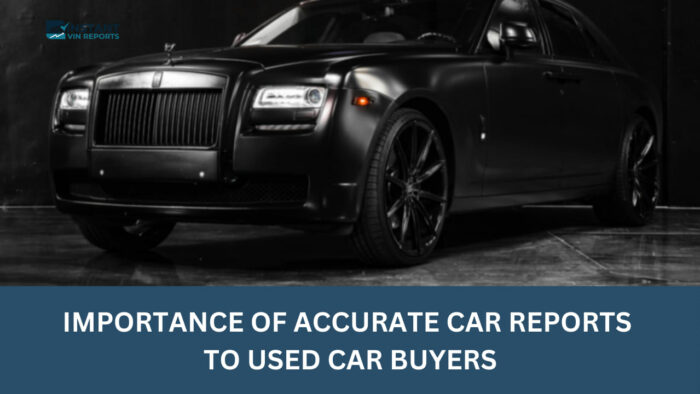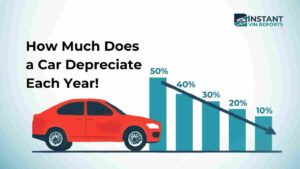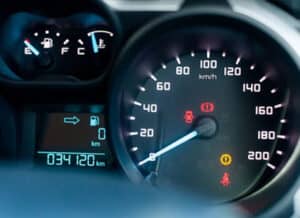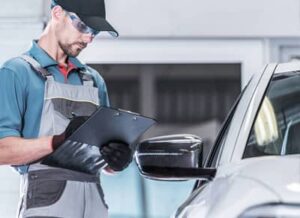Buying a used car is not always safe, especially if you are unaware of its history. This is why car reports are very important—they reveal problems such as accidents or major repairs. Learn how to find car accident reports, you can feel more sure about your choice and avoid surprise troubles.
What is a Car Report?
A car report is a record of a vehicle. The report typically includes maintenance records, lien and loan documents, and other relevant information. By reviewing these reports, you can avoid buying a vehicle with hidden issues.
With this document, car buyers can make informed decisions and purchase the best cars.
Why is a Car Report Important?
A car report gives buyers trusted details about a vehicle’s past. It helps avoid costly surprises, supports better decisions, ensures the car is worth the price, and is safe to drive.
Showing the Vehicle’s Past
A car that looks perfect on the outside could still have hidden damage underneath. A vehicle history report helps reveal important facts and provides a clearer picture before making a purchase.
ALSO READ: The future of car-reporting technology and how it benefits consumers
Know the Car’s True Value
Cars with a history of accidents tend to lose value more quickly. Even if the car has been repaired, its resale value is usually lower compared to a car with no accident history.
Showing Safety Risks
Serious incidents can significantly impact a car’s structural integrity. Even if repairs were done, the car might not be as safe as it used to be.
How to Find a Car Accident Report
To find a car history report, follow these simple steps to obtain a vehicle history report that includes past owners, accident reports, and other relevant information.
Here’s how you do it
Find the VIN
Before you begin the process, locate the Vehicle Identification Number (VIN). You can find the VIN on the car’s documentation. If you do not have the VIN, ask the seller for it.
Go to the Instant VIN Report Page
After you have obtained the VIN, visit the free VIN decoder page to decode your VIN and access the vehicle report.
Fill in the Details
Fill in the details like the VIN, along with your email address and phone number. No VIN? No worries, you can use the license plate instead.
Begin the Process
After you’ve filled out the details, hit the “Search” button. Wait for the system to generate the vehicle history report, which will include the information.
Download the Report
You can download the vehicle history report in PDF format and review it thoroughly.
What to Look for in a Vehicle History Report
Once you have the vehicle report with you, here are the key aspects to examine to ensure the vehicle’s safety.
Accident History
View information about the vehicle’s history, including salvage title status and verified insurance claims, pulled from national records. You’ll also see past auction photos to better understand the level of damage.
ALSO READ: Common mistakes to avoid when buying a car in 2023
Safety Rating
Learn more about the vehicle’s safety by checking its crash test ratings and the technology features designed to reduce risks.
Recalls
Learn more about the vehicle’s safety by checking its crash test ratings and the technology features designed to reduce risks.
Why Vehicle History Report Matters
Knowing the detailed information, including the accident and title report, is crucial when purchasing a used vehicle. Getting a vehicle history report is important in many aspects, not only being informed of the records, but also so much more.
Make Smarter Buying Decisions
Knowing the detailed information, including the accident and title report, is crucial when purchasing a used vehicle. Getting a vehicle history report is important in many aspects, not only being informed of the records, but also so much more.
Avoid Scams
Some sellers might roll back the odometer to hide serious damage. A history report can catch these tricks and help you avoid being scammed by the seller.
Get Better Insurance Rates
Cars with a clean record often receive better insurance rates. You’ll save money in the long run if your car has a solid background.
What If a Car Has Been in an Accident?
A minor scratch or a bumper replacement doesn’t always affect performance. But you should always:
- Ask for repair records
- Get a mechanic to inspect the car
- Use the report to negotiate a lower price if needed
Check These Out Before Buying a Used Car
If you want to buy a used car, be sure to check these things out before proceeding to payment to avoid being scammed or getting a junk car.
- Always check the VIN or license plate
- Use trusted platforms like Instant VIN Reports
- Ask questions and get proof from the seller
- Don’t rush into a deal without doing your research
Conclusion
Learning how to find a car report is crucial before purchasing a vehicle. These reports can help you avoid dangerous or overpriced vehicles, save you money, and give you peace of mind.
While there is no perfect way to guarantee a trouble-free car, checking the history puts you in a much better position. Use the tools available—like VIN checks, license plate lookups, and history reports—to make sure you know the full story behind the car.
Frequently Asked Questions
Can you tell who hit whom in a car?
In cars, surveillance videos can provide evidence of fault. Additionally, dashcam footage from other drivers who stop at the scene to share their recordings or contact details is a significant form of evidence.
How do I check a car’s history?
You can check the car’s history through a VIN decoding. Simply decode the VIN to obtain the vehicle’s history report. In the report, you will find the “ Records” that provide detailed information about the vehicle.
What things do car dealerships do to hide how poor a car might be?
To conceal a vehicle’s poor condition, dealerships may use tactics such as omitting mileage details, positioning the car to hide flaws, or using products to mask interior odors. They might also emphasize recently replaced items to divert attention from other issues.










